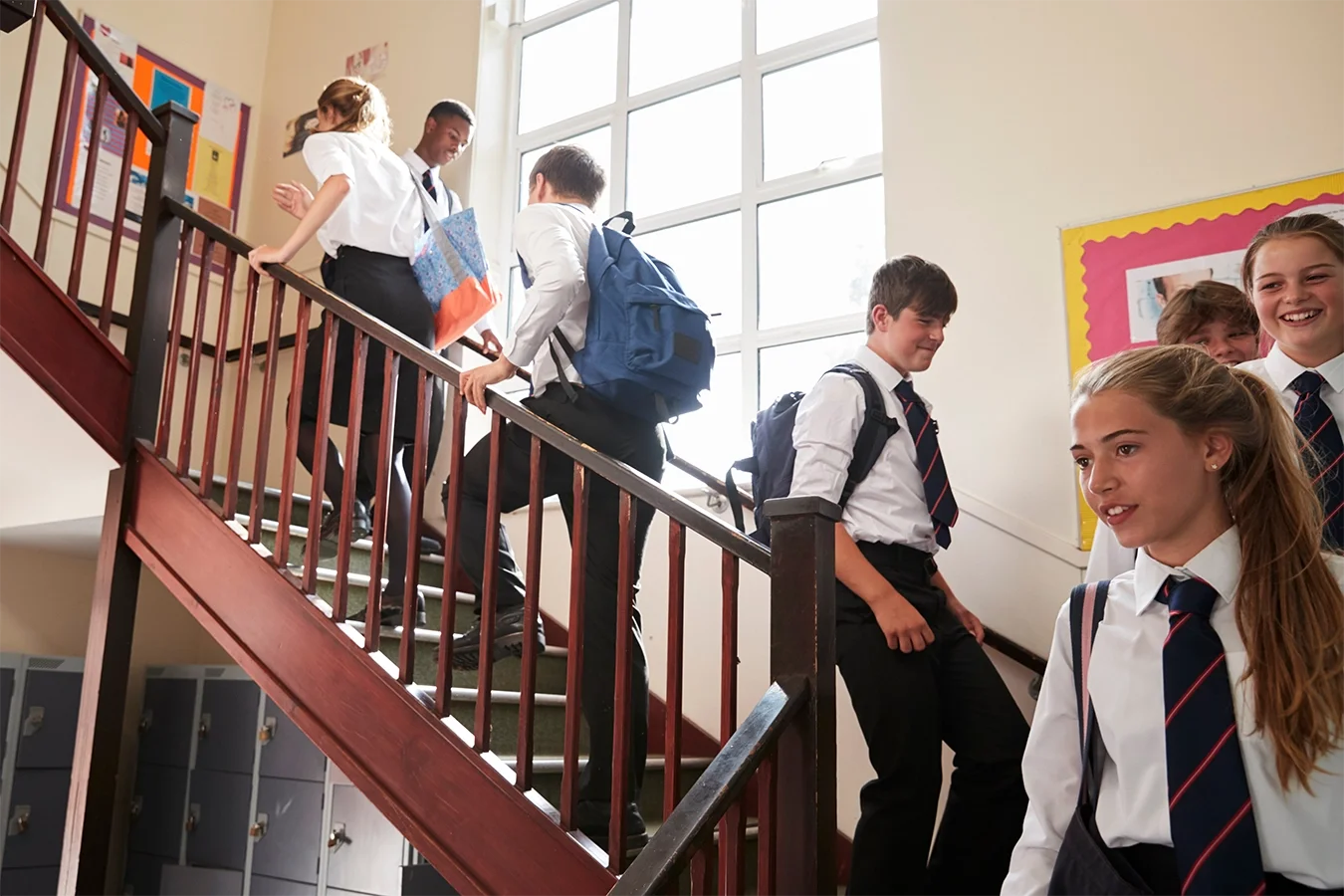“It’s the biggest policy review we’ve had in 20 years, but it is doable.” Inside a Wicklow school’s phone-free rollout
As Irish schools implement phone restriction guidance, this Wicklow example shows how to make it sustainable without constant conflict.
Partner Spotlight: Creating Space for Connection
Discover how The Why Collective and Yondr are transforming immersive art in New York City by creating truly phone-free, distraction-free environments. Their new partnership enhances the acclaimed MIXT: A Living Gallery experience with analog creativity, deeper connection, and full presence.
New Phone-Free Schools Survey: Dramatic Improvements in Engagement and Teacher Satisfaction
New data from Yondr’s 2024–2025 Reflection Survey shows that schools implementing phone-free policies saw major gains in student engagement, classroom behavior, and teacher satisfaction within the first year. As momentum grows nationwide for phone-free learning environments, the findings highlight how structured, bell-to-bell smartphone restrictions can transform school culture and improve outcomes for both students and educators.
Are Students Safer Without Cell Phones?
School leaders are rethinking phones during the school day—not to cut off communication, but to reduce chaos. This practitioner-led Q&A unpacks how phone-free policies can steady emergencies, lower bullying pressure, make lunch and hallways feel safer, and bring attention back to learning.
Phone-Free Schools: Texas’ Bell-to-Bell Cellphone Policy Takes Effect
Beginning Sept 18th, 2025, Texas public K–12 schools must ban student cellphone use during the school day—with state funding available to support secure storage. Here's what HB 1481 requires, and how districts can comply effectively and equitably with Yondr.
20 Million Moments of Connection
Yondr has transformed live entertainment with its signature phone-free experience — securing over 20 million devices across 10,000 events worldwide. From Dave Chappelle to Paul McCartney, artists trust Yondr’s lockable pouches to create real, in-the-moment connections between performers and fans. Founded by Graham Dugoni in 2014, Yondr has become the creative standard for authentic, distraction-free experiences that bring audiences back to what truly matters: being present.
Phone-Free Schools: MTSS and Student Success
Phones are a major classroom distraction—but what if schools didn’t have to compete with them at all? Explore how Yondr’s phone-free approach acts as a powerful Tier 1 intervention under the MTSS framework, improving student focus, teacher morale, and school culture.
Students Suffering From Digital Overload?
How much of an impact are cell phones having on students’ academic performance, mental health, and social skills? Check out the latest research data on digital overload among young people, how phone-free schools are gaining momentum, and why educators are turning to Yondr for solutions.
Phone-Free Schools: How Oregon Districts Are Preparing for Success
To boost student learning and mental health, Oregon is implementing a mandatory bell-to-bell cell phone ban in K-12 schools. Here's what the executive order requires and how secure, locking phone pouches from Yondr are helping schools make the transition.
Phone-Free Schools: Utah Mandates Cell Phone Ban in Public Schools
Phone-free legislation is now in effect in all Utah public schools. Learn what districts need to know and how Yondr helps schools enforce new requirements with ease.
Back to School, Off Screens: Yondr Partner Schools Make Headlines
As more districts recognize the transformative power of distraction-free learning, Yondr has become a partner of choice for schools across the United States. Local and national news coverage points to how Yondr’s secure, patented phone pouches are driving measurable results.
Phone-Free Schools: California’s 2026 Device Use Deadline
California's Phone-Free School Act (AB 3216) requires all public and charter schools to implement phone-limiting policies by July 1, 2026, with state funding potentially available through learning recovery grants.
Phone-Free Schools: Inside Oklahoma’s One-Year Statewide Ban
Starting July 2025, all Oklahoma public schools must enforce a full-day cellphone ban under Senate Bill 139. Learn what the law requires, how long it lasts, and how Yondr helps districts go phone-free with clarity and confidence.
Phone-Free Schools: Florida’s New Bell-to-Bell Policy Explained
Now in effect, Florida's new "bell-to-bell" legislation expands the state's 2023 phone restrictions, requiring elementary and middle schools to prohibit wireless device use all day. High schools continue classroom restrictions with select pilot programs testing full-day policies. Here's what HB1105 requires.
Creating Phone-Free Schools in NYC: How To Prepare for the 2025–2026 School Year
New York City is officially going phone-free. Starting Fall 2025, all K–12 public schools must enforce bell-to-bell cellphone bans—backed by rollout funding. Learn what New York City Schools need to do, what exemptions apply, and how Yondr is helping schools stay compliant and focused.
“What Have Smartphones Done to Us?” Yondr Founder on Prof G’s First Time Founders
In a powerful episode of First Time Founders, Yondr founder Graham Dugoni discusses how the company addresses rising screen time habits and has built a global movement for focus and freedom.
Phone-Free Schools: What Georgia’s New Law Means for K–8 Districts
Beginning Sept 1, 2025, Texas public K–12 schools must ban student cellphone use during the school day—with $20 million in state funding available to support secure storage. Here's what HB 1481 requires, and how districts can comply effectively and equitably with Yondr.
Phone-Free Schools: Missouri’s Pending Policy, Unpacked
Missouri is poised to join the growing list of states adopting bell-to-bell cellphone bans in K–12 schools. Senate Bill 1481 requires all public districts and charters to implement distraction-free policies by the 2025–2026 school year. Here’s what schools need to know—and how Yondr is helping districts lead the way.
Phone-Free Schools: New York’s Bell-to-Bell Law
New York is officially going phone-free. Starting Fall 2025, all K–12 public schools must enforce bell-to-bell cellphone bans—backed by $13.5 million in rollout funding. Learn what districts need to do, what exemptions apply, and how Yondr is helping schools stay compliant and focused.
Phone-Free Schools: Alabama's New Policy, Explained
Alabama just passed one of the strongest phone-free school laws in the country. Starting Fall 2025, all public K–12 schools must implement bell-to-bell cellphone bans under the FOCUS Act. Learn what’s required, how schools are already seeing success, and how Yondr can help your district stay compliant—and thrive.




















